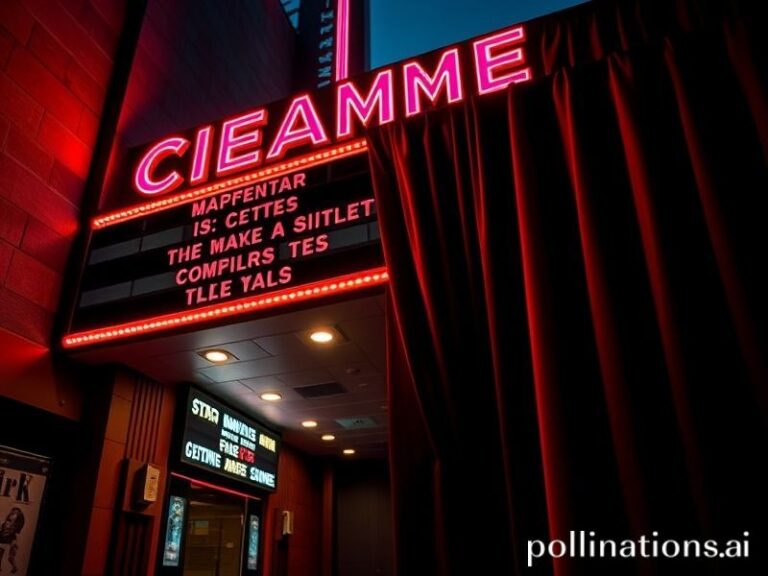pedestrian accident lawyer
The Global Ballet of Brake Lights: Why the Pedestrian-Accident Lawyer Is Now a Borderless Brand
By the time you finish reading this sentence, another human being somewhere between Lagos and Ljubljana will have been introduced to the hood ornament of a moving vehicle. Statistics, those charming little liars, inform us that 1.35 million of these intimate encounters occur annually—roughly the population of Prague taking a very sudden horizontal holiday. Which explains why, from São Paulo’s cloud-kissing helipads to Mumbai’s shoulder-to-shoulder flyovers, the pedestrian-accident lawyer has become the world’s most unexpectedly cosmopolitan professional.
It used to be that if you were run over in Paris you hired a French avocat and prayed his cigarette didn’t ash on your spinal X-rays. Today, however, the legal supply chain is delightfully multinational. A Chinese e-scooter knocks you down in Berlin? A Texan litigator partners with a Milanese traffic-forensics startup and a Ukrainian CGI studio to re-create your tumble in 4K. The client—dazed, concussed, but curiously well-represented—awakens to find a WhatsApp group titled “Project Pancake” buzzing in seven languages. Globalization: it giveth cheap sneakers and taketh away safe crosswalks in the same fiscal quarter.
Irony, ever the seasoned traveler, notes that the more cities invest in “Vision Zero” campaigns, the more zeroes appear on the invoices. London’s mayor plants 1,500 new speed bumps; London’s lawyers plant 1,500 new billable-hour narratives. In Bogotá, green-painted ciclovías are matched peso-for-peso by the marketing budgets of personal-injury boutiques whose mascots are, I kid you not, cartoon crutches with smiles. Meanwhile, Dubai simply outlaws pedestrians altogether in certain districts—problem solved, tourism brochures unblemished.
The jurisprudence itself has turned into a kind of grim Eurovision Song Contest. Countries compete to see who can award the most eye-watering damages. The United States still belts out the power ballad of seven-figure settlements, though it is lately harmonized by German courts awarding “immaterial pain” bonuses for every Instagram influencer who missed a sponsored post while in traction. Japan, ever minimalist, prefers a single elegant bow and a lifetime metro pass; critics call it lowball, fans call it origami justice.
Technology, never content to merely maim, now offers live-streamed collisions. Dash-cams in Vladivostok capture fender-human-fender ballets in HD; within minutes, AI bots scrape the footage, match it to jurisdictional statutes, and push ads for “No Win, No Fee” services before the victim’s phone even hits the asphalt. In a particularly post-modern twist, some firms in Tel Aviv lease autonomous drones to circle accident hotspots like ambulance-chasing vultures with Wi-Fi. The drones project holograms of attorneys giving a thumbs-up: “Already drafting your claim!”
Culturally, the phenomenon has birthed its own etiquette. In Mexico City, it is considered gauche to call your lawyer before calling your mother—so most people just conference them both in. Stockholm pedestrians now wear discreet QR codes on lapels linking to pre-retained counsel, like silent alarm buttons for the litigation age. And in Cairo, where traffic resembles a particle accelerator designed by caffeinated toddlers, seasoned walkers carry stamped retainers the way Boy Scouts once carried compasses.
The broader significance? Simple: as the planet urbanizes, the sidewalk has become the last truly democratic space—everyone gets flattened equally. The pedestrian-accident lawyer, then, is not merely a litigator but a cartographer of inequality, mapping who can afford to walk, who can afford to drive, and who can afford to sue when those two hobbies intersect. In that sense, every crosswalk is a referendum on civic priorities, every settlement a footnote in the ledger of what a human body is worth when it’s inconveniently in the way.
So the next time you step off a curb—whether in Toronto, Tbilisi, or Timbuktu—remember you’re participating in a planetary choreography choreographed by city planners, distracted drivers, and the ever-watchful attorneys poised to monetize your misstep. And if the worst occurs, take comfort in knowing the world is watching, recording, and already calculating interest on your pain. The ambulance is en route; the invoice will follow shortly.







